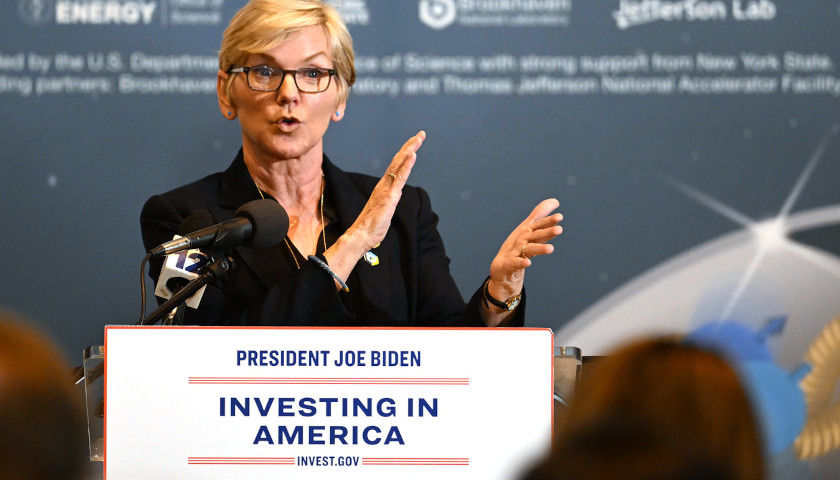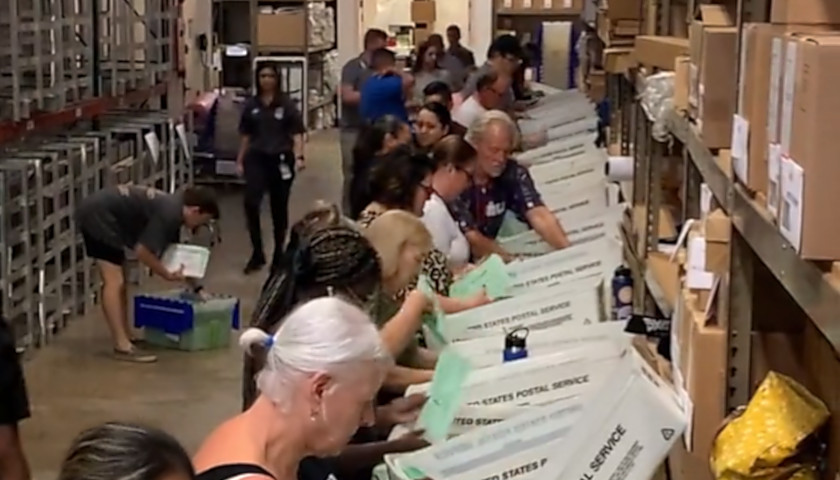by Will Kessler
Shareholders at auto manufacturing giant Ford Motor Co. voted down a proposal Thursday requiring that a report be compiled on the use of child labor in its electric vehicle (EV) line.
 The proposal, which was presented by the National Center for Public Policy Research (NCPPR) at Ford’s annual shareholder meeting, called for Ford to report to shareholders the extent to which the company’s EV supply chain involves, depends or relies on child labor outside of the U.S., according to Ford’s proxy statement. The NCPPR called for the report due to the prevalence of child labor in the harvesting of the components used to craft EVs, particularly cobalt, which is commonly sourced from the Democratic Republic of the Congo (DRC).
The proposal, which was presented by the National Center for Public Policy Research (NCPPR) at Ford’s annual shareholder meeting, called for Ford to report to shareholders the extent to which the company’s EV supply chain involves, depends or relies on child labor outside of the U.S., according to Ford’s proxy statement. The NCPPR called for the report due to the prevalence of child labor in the harvesting of the components used to craft EVs, particularly cobalt, which is commonly sourced from the Democratic Republic of the Congo (DRC).
Shareholders overwhelmingly voted against the proposal, the NCPPR confirmed to the Daily Caller News Foundation.
“Ford refuses to disclose if it sources cobalt for its EVs from the DRC, where it’s effectively impossible to get a sizeable amount of cobalt without relying on child or forced labor,” Ethan Peck, associate for the NCPPR’s Free Enterprise Project, told the DCNF. “Ford’s production of and plans for EVs — which are not profitable or environmentally beneficial — are unnecessarily costing shareholders, and likely at the expense of the well-being and safety of children in the DRC, only because it’s politically fashionable and beneficial to the CCP to substitute fossil fuel generated energy for fossil fuel-generated energy stored in batteries made of minerals.”
Ford argues in its response that the company’s policy already prohibits the use of child labor for itself and its suppliers, according to the proxy statement. Ford claims to verify this by assessing its supply chain, conducting “social responsibility audits,” training employees and suppliers on compliance and conducting third-party reviews.
Biden Unleashed Over $1 Trillion In Bid To Be ‘The Next FDR,’ But Only A Small Fraction Has Actually Been Spent https://t.co/VokayzU5z7
— Daily Caller (@DailyCaller) May 9, 2024
“Ford provides transparency to its shareholders about its sustainability efforts in various reports that provide detailed information about the Company’s efforts to prevent and address human rights issues, including child labor, in its supply chain,” Ford said in its proxy statement. “Preparing the additional reporting requested by the proposal would require significant time and expense without incremental benefit.”
Child labor is particularly prevalent in artisan cobalt mines in the DRC, which make up around 30 percent of the country’s supply, with resources from those mines frequently being sold to processing facilities where, once mixed together, it is often untraceable, according to research from JPMorgan Chase. More than 70 percent of the world’s supply of cobalt comes from the DRC.
The organizations conducting Ford’s “third-party review” are vetted and selected by the Responsible Business Alliance (RBA), according to a Securities and Exchange Commission filing by the NCPPR. Ford employee Sue Slaughter was the chair of the board of RBA until she was replaced by another Ford employee, Mary Wroten.
Cobalt is a critical resource in the manufacturing of batteries for EVs, with China and the DRC effectively dominating the supply chain.
Ford announced in April that it was delaying the release of new EV models amid a slump in demand, following similar moves by other automakers like General Motors and Mercedes-Benz. The company lost $1.3 billion on its all-electric Model e unit in the first three months of 2024, only selling 10,000 vehicles.
Demand for cobalt is increasing as companies and the Biden administration push to facilitate a transition from cars using the internal combustion engine to hybrids or EVs. Growth in demand for EVs slowed drastically in the first quarter to just 2.7 percent, leading its market share compared to traditional vehicles to decline from 7.6 percent to 7.1 percent.
Ford did not immediately respond to a request to comment from the DCNF.
– – –
Will Kessler is a reporter at Daily Caller News Foundation.
Photo “Ford eEectric Vehicles” by Ford.








